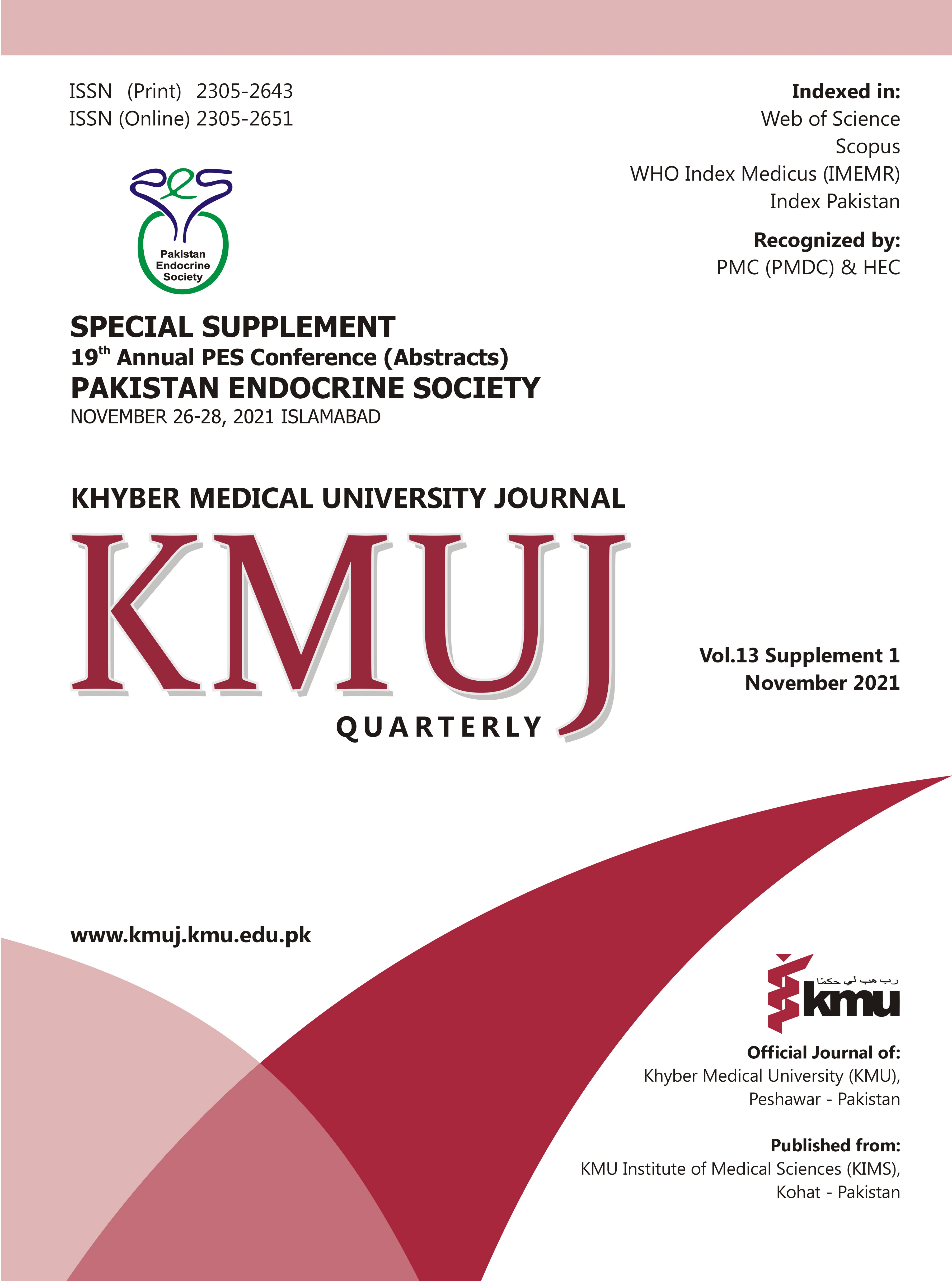ASSOCIATION OF METABOLIC SYNDROME WITH VITAMIN D DEFICIENCY AT TERTIARY CARE HOSPITAL OF KARACHI
Main Article Content
Abstract
OBJECTIVE: To determine frequency of vitamin D deficiency among patients with metabolic syndrome.
METHODS: This cross-sectional study was conducted at Jinnah Postgraduate Medical Centre, Karachi-Pakistan from 30/2/2020 to 30/7/2020. Data were prospectively collected from patients, meeting the diagnostic criteria with ≥3 of the following risk factors:
- A centrally distributed obesity with waist circumference >90 cm in men & >80 cm in women
- Elevated levels of triglycerides (>150 mg/dl)
- Decreased HDL (<40 mg/dl in men; <50 mg/dl in women)
- Systolic blood pressure >130 mmHg; diastolic blood pressure >85 mm Hg
- Elevated levels of fasting glucose i.e. >110 mg/dl
Fasting blood (05ml) was collected in morning, serum separated and stored at -70OC for subsequent analyses of vitamin-D by ELISA. Effect modifiers were controlled through stratification to see the effect of these on the outcome variable.
RESULTS: Out of 193 patients with metabolic syndrome, 82 (42.5%) patients were males and 111 (57.5%) were female. Vitamin D deficiency was observed in 73/193 (40.9%) subjects. Mean age, duration of disease, serum glucose, height and weight in our study was 52.78±8.81 years, 2.21±1.18 years, 210.65±12.52 mg/dl, 158±7.28 cm, and 78.7±9.87 kg respectively. Age, gender, and educational status were the most important risk factors that might be leading to vitamin D deficiency in metabolic syndrome patients (p-value <0.05).
CONCLUSION: Vitamin D deficiency is highly prevalent in patients with metabolic syndrome. Large scale studies are needed for identification of the risk factors leading to vitamin D deficiency in patients with metabolic syndrome.
Article Details
Work published in KMUJ is licensed under a
Creative Commons Attribution 4.0 License
Authors are permitted and encouraged to post their work online (e.g., in institutional repositories or on their website) prior to and during the submission process, as it can lead to productive exchanges, as well as earlier and greater citation of published work.
(e.g., in institutional repositories or on their website) prior to and during the submission process, as it can lead to productive exchanges, as well as earlier and greater citation of published work.
